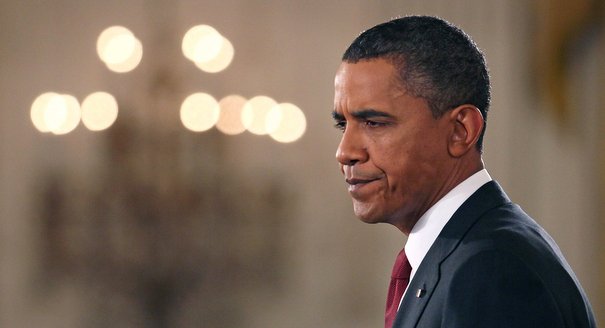The cancellation of the U.S.-Russian summit marks the formal end of President Barack Obama’s reset policy.
The Edward J. Snowden case is not the reason the summit was called off. At most, it is a pretext. The failure to achieve any progress on Syria is a more serious symptom of what is wrong with U.S.-Russian relations.
The real reason is U.S. domestic politics. In the last several weeks, Obama was severely criticized on all sides—from the Wall Street Journal to the New York Times—for his allegedly too-soft policy on Russia. With Obama finding it increasingly difficult to promote his domestic agenda with the healthcare reform as its centerpiece, he does not want to make more enemies. Apparently, canceling the summit with Russian President Vladimir Putin looked to be the lesser evil in the eyes of the U.S. president and his advisers.
The only precedent for this decision that I remember was the choice by then Soviet leader Nikita Khrushchev to call off a summit with then U.S. president Dwight D. Eisenhower in 1960—after the downing of the U-2 spy plane over the Urals and the capture of the pilot, Gary Powers. The decision will leave its mark on U.S.-Russian relations. The atmosphere will grow thicker, and cooperation even harder to obtain. The Kremlin will likely interpret the move by the White House as a sign of Obama’s political vulnerability and conclude that not much can be done with the present administration. No imminent crisis will follow from this decision, but the relationship will not be productive for some time.
But it may not stop there. The reset might be followed by something that can be called a counter-reset: a U.S. policy of applying more pressure on Russia. Some of those who have been calling on Obama to cancel his meeting with Putin actually want the administration to go further than this. The 2014 Winter Olympics that Russia will host in Sochi has been their favorite target. If they aren’t arguing to boycott them altogether, then they want Obama and other Western leaders to refuse to attend the games. Russia’s hosting of the G8 meeting in 2014 may also be called into question. And the “Magnitsky list” of Russians sanctioned by the United States may run longer and reach higher levels.
All these things are symbolic, but they symbolize a trend that has been gaining strength since 2011: a shift toward alienation in the relationship between Russia and the West. With Obama’s reluctant decision to cancel the summit, the trend has reached an important milestone.
Ostensibly aimed at Vladimir Putin and the Kremlin’s policies, the efforts of those who seek to punish Moscow and put pressure on it will contribute to the global geopolitical rebalancing. Steven Pifer, an experienced U.S. diplomat and a respected analyst, has just written that Russia has become irrelevant to the United States. Time will test this interesting proposition.
